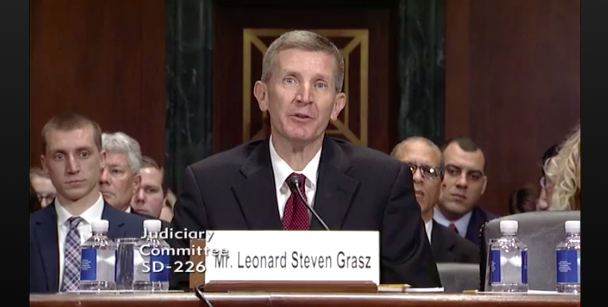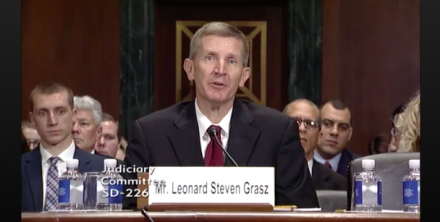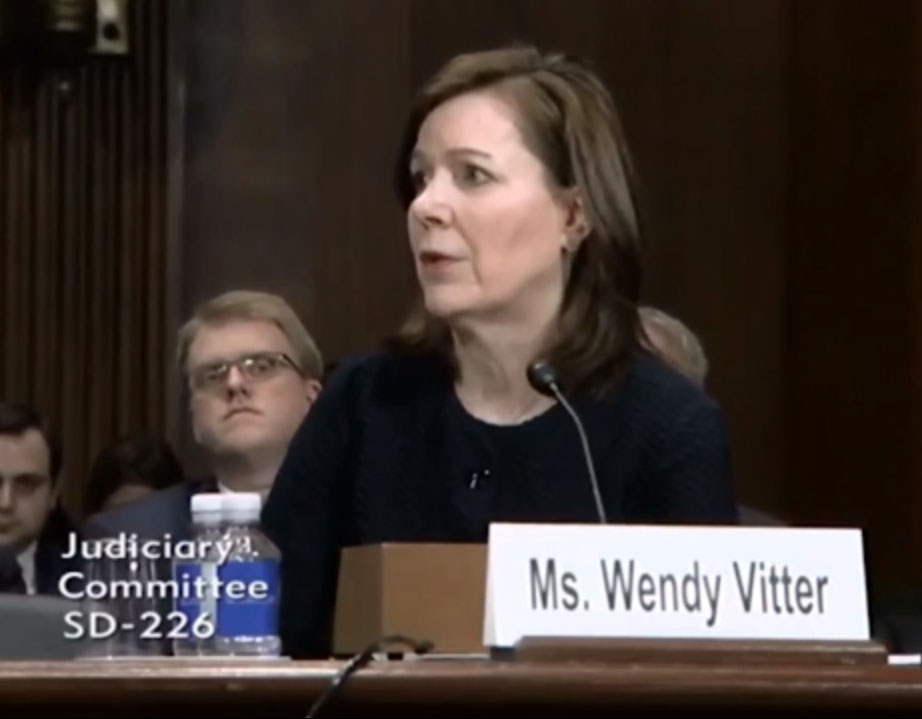Abortion rights, women of color, and LGBTQI+ people are under attack. Pledge to join us in fighting for gender justice.
Troubling Judicial Nominees Rushed Through Committee

 Today, the Senate Judiciary Committee voted on a number of controversial judicial nominees. They included Leonard Grasz, nominated to the Eighth Circuit, whom the ABA Standing Committee on the Federal Judiciary rated unanimously “Not Qualified,” in part because of his extreme anti-abortion advocacy and questions about his respect for precedent and ability to rule impartially if confirmed. Also Don Willett, nominated to the Fifth Circuit, who once described “glass ceilings,” pay equity, “the need to place kids in the care of rented strangers,” and sexual discrimination/harassment as a lot of “hype.” And Mark Norris, nominated to the U.S. District Court for the Western District of Tennessee, who has spent the past 17 years as a Tennessee legislator trying to make it more difficult for women to access abortion, undermining antidiscrimination protections for LGBTQ individuals, and more. If these nominees are confirmed, their legal records would give people coming before them reason to question whether they will get a fair hearing.
Today, the Senate Judiciary Committee voted on a number of controversial judicial nominees. They included Leonard Grasz, nominated to the Eighth Circuit, whom the ABA Standing Committee on the Federal Judiciary rated unanimously “Not Qualified,” in part because of his extreme anti-abortion advocacy and questions about his respect for precedent and ability to rule impartially if confirmed. Also Don Willett, nominated to the Fifth Circuit, who once described “glass ceilings,” pay equity, “the need to place kids in the care of rented strangers,” and sexual discrimination/harassment as a lot of “hype.” And Mark Norris, nominated to the U.S. District Court for the Western District of Tennessee, who has spent the past 17 years as a Tennessee legislator trying to make it more difficult for women to access abortion, undermining antidiscrimination protections for LGBTQ individuals, and more. If these nominees are confirmed, their legal records would give people coming before them reason to question whether they will get a fair hearing.
Several Senators on the Committee, including ranking member Senator Dianne Feinstein, pointed out that judicial nominees are being rushed through the Committee process at an unprecedented pace. Holding hearings packed with multiple court of appeals nominees, scheduling hearings at an incredibly rapid pace, and bypassing Senate tradition and consultation with home-state Senators by selectively respecting the blue slip, have culminated in more circuit court judges confirmed during the first year of a presidency since Nixon. This is striking not only because of the extreme nominees being confirmed, but also because of the glacial pace at which President Obama’s judicial nominees were considered, especially towards the end of his administration.
Federal judges decide cases that impact the lives of women and girls every day – and they are appointed for life. That means their rulings can affect our rights for generations. In terms of the process used to evaluate their records — we deserve better.





